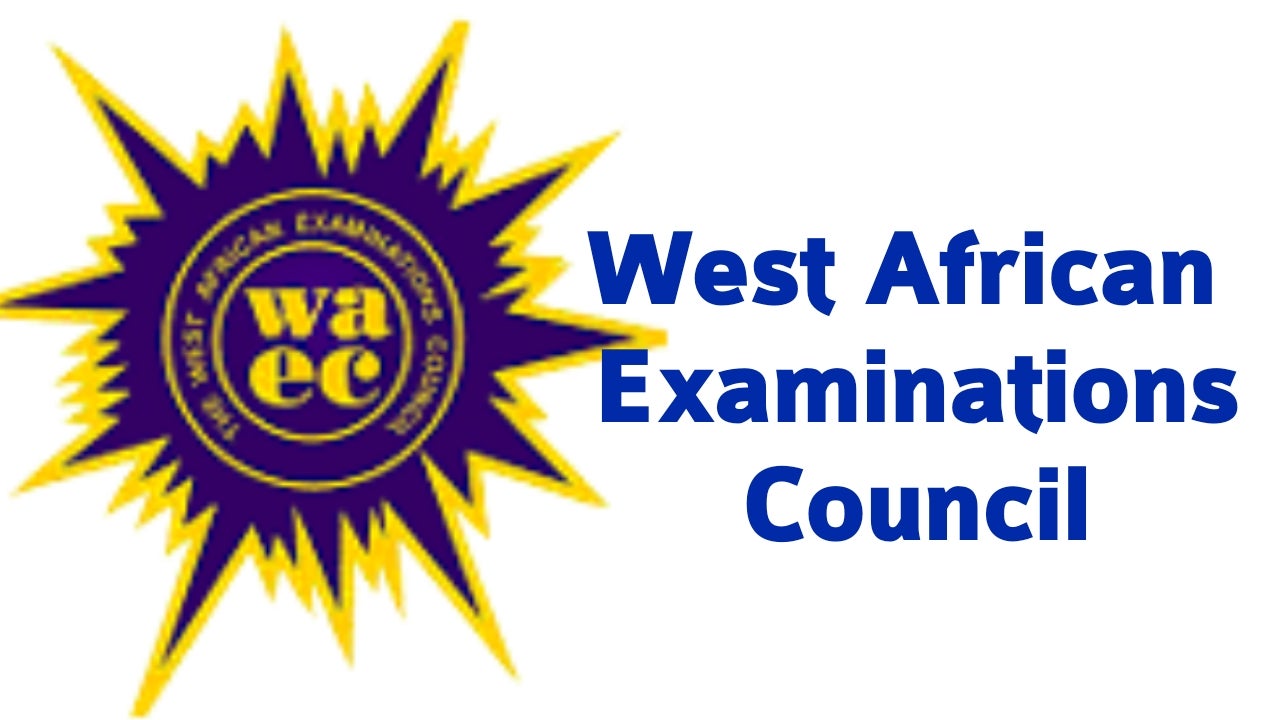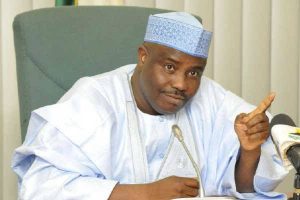
The West African Examination Council, WAEC, was preparing for the West African Examination Council Examination, WASSCE, for secondary school candidates scheduled for April 6, 2020, when the Coronavirus pandemic struck. This led the postponement of the examination as the date by the exam body in March, 2020. The decision to put on hold the examinations led to confusion in the education sector in Nigeria as parents, teachers and other stakeholders expressed concerns over the progress of the academic years of their wards.
WAEC is an international body which conducts the West African Senior School Certificate Examination, WASSCE, the General Certificate Examination, GCE, which prepares students for the Joint Admissions and Matriculations Board, JAMB exams. WAEC has served the Anglophone West Africa since 1952, where it conducts both Basic, Junior Secondary School, Senior Secondary School, and other international examinations in those countries. With the outbreak of the coronavirus across the globe, as well as the sub-region, WAEC and the individual states have to negotiate the dates and method of conducting the exams.

In Nigeria, both private and public secondary schools had to close in accordance with the COVID-19 rules set up by the Presidential Task Force on Covid-19. While the fates of teachers and students remain in limbo, many schools embarked on online teaching programmes to continue to stimulate their minds. Many stakeholders lamented that although it is no fault of the Federal Government, the prolonged suspension of the WASSCE may lead to hugely distracted and unequipped students for exams, and by extension work life.
Mr Patrick Areghan, WAEC’s Head of National Office has continued to work hand-in-hand with the Nigerian government, while liaising with the HNOs of other West African states in other for the body to have a strong voice in considering the ‘new normal’ that has come to fore. In July, the HNO of Nigeria had occasion to address the Nigerian press. ‘Gentlemen of the media, these are no normal times. The examination is going to be conducted under a very unfriendly atmosphere and conditions. I will like to use this opportunity to advise all schools and candidates to make the best use of the situation in order to turn adversity into success.’
However, stakeholders like Mr Issa Aremu, the former Vice President of the Nigeria Labour Congress, NLC, has called on the FG to negotiate with WAEC that exams should hold when the level of COVID-19 infections have reduced greatly. He insisted that schools should not be reopened without a systematic awareness programme, as well as the provision of all the necessary Personal Prevention Equipment, PPE to prevent the spread of the pandemic. He urged that government explore digital intervention to the education sector.
Mr Chukwuemeka Nwajiuba, the Minister of State for Education, who had been managing the deliberations on the reopening of schools, liaising across State education boards and institutions, as well as the Task Force, he said that the governors and the state commissioners have agreed that schools will open on August 3, in order to prepare for the WASSCE, while all exams common to all Anglophone West Africa will commence on August 17, exams peculiar to Nigeria will hold from September 5 to September 14. Mr. Nwajuiba said that Nigeria will work on domesticating its own exams timetable. As a whole, Mr. Nwajuiba said ‘From the 4th of August to the 5th of September. Parents please take note. As soon as we conclude WAEC, we will take up NABTEB and NECO exams.’ He said that final year secondary school students have two weeks to prepare for their WASSCE. He urged those who had not concluded on the NECO registration to do so.
However, there seems to be an absence of harmony in the Presidency, especially within the Ministry of Education, as the Alhaji Adamu Adamu, the Minister of Education has reportedly noted that the FG may withdraw from conducting the WASSCE exams so as to pull all its resources behind the GCE, which takes place in November. He also said Unity Schools would be withdrawn participating in the WASSCE exams. He asked the state governments to renege on their decision to allow for the exams to be conducted in their states.
In response to this alarming intervention by the minister, the House of Representatives lent its voice to the WAEC exams during a plenary session on July 13, that it would be to the detriment of the country if it considered stopping her students from participating in the globally recognised exams. The law-making body said that the exams should be conducted as long as there is an adherence to the COVID-19 guidelines. They also noted that barring Nigerian students from writing the exams would send a signal of incompetence to the international community, which would in turn affect the nation’s international finance outlook. The House resolved in a motion to ask the FG to halt from any attempt to withdraw WASSCE and other Common Entrance exams.

Mr Yinka Odumakin, Spokesperson of the Afrenifere, the Pan-Yoruba Group, has also faulted the government for its lack of harmony or integration. In a Press statement, he said that ‘It is not comprehensible that the PTF would go and announce that schools should go and resume without consultation with the Ministry of Education and that the minister will come on TV and be stamping his feet saying ‘nobody will tell us when we are to open until we are ready’. If we have an integrated government. We advise Mr President to manage his men so our students are not made to lose a session to ego fights of our officials,’. In similar vein, former Vice President, Atiku Abubakar urged the FG to seek better ways to allow WAEC conduct the exams. He said, ‘1.5 million Nigerian youths write the West African Senior School Certificate Examination annually. To abruptly cancel this examination is to set back our nation’s youth, and place them behind their contemporaries in other West African nations.’ Reno Omokri, a social media critic, said in a series of tweets, ‘How can Buhari say WAEC exams won’t hold this year, yet Edo and Ondo elections will hold? Which is riskier? Exam or elections? APC held a mass rally. Yet, they close schools. No wonder Nigeria is the world headquarters for extreme poverty.’
Mr Ben Bem Gong, Press and Public Relations of the Federal Ministry of Education, later clarified any misconceptions by stating that resumption of classes on the 4th of August, was strictly for graduating classes, in order to prepare them for their final exams. This was further to discard the rumours making the rounds that the resumption date was meant for students in Nigeria. The Ministry of Education met with the Nigerian Centre for Disease Control in order to draw up operational modalities for conducting the exams. The Chairman of the PTF had also asked the stakeholders to make their facilities available to students for revision.
The plan put forward by the Minister for State for Education was to allow all students from participating countries to write papers common to them while the Nigerian government would negotiate the dates peculiar to its students. ‘WAEC, unfortunately, is unable to wholesomely move the examination, but we have also worked out a negotiated timeline with WAEC on what we call peculiar Nigerian subjects which in the language of WAEC are subjects that are only held in Nigeria, such as Ibo, Hausa and Yoruba,’ Mr. Nwajuiba said.
Sonny Eloho, Permanent Secretary of the Federal Ministry of Education told the media that the ministry had received a feedback on the timetable from WAEC. On the heels of the feedback, Mallam Adamu Adamu, the Education Minister will be engaging other examination bodies in a meeting in July 28 in order to harmonise the examination dates, and to assess the level of preparedness of senior secondary schools to write the WASSCE. The meeting presided by the education minister will border on the new WASSCE timeline, and the timetables of other examination bodies; National Examination Council, NECO, Basic Examination Council, and National Board of Technical Examination, NABTECH.
Read Also: WAEC Postpones Release of Examination Results
Mr Patrick Areghan, in a recent media briefing with the media, said, ‘We have encapsulated all these measures in a pamphlet which will be circulated to all stakeholders for their necessary guidance. For the sake of emphasis, schools must provide wash-hand buckets with running water, soaps, hand sanitizers and thermometer hand-gun to check the temperature of all concerned.’ He said that the ‘new normal’ will incur more expenses for the exam body as it intends to use more invigilators, equip them with Personal Protective Equipment, PPE, and also provide adequate compensation to all examination officials. Areghan urged corporate and philanthropic bodies to deploy their Corporate Social Responsibility to the country’s education system at this trying times.
